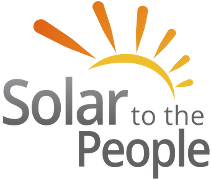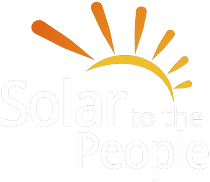Is it Better to Lease or Buy Solar Panels?
Discover how much you can save today with our solar calculator
Switching to solar has major advantages, and there are more ways than ever to pay for them. If you’re thinking about going solar, you might feel overwhelmed by the abundance of options for financing. Is it better to lease or buy solar panels? The answer depends on your financial and ownership goals. Here, we’ll break down the most important considerations when shopping for residential solar.
Before settling on a method of financing a home solar system, it is important that you carefully weigh all of your financial options. In this article, we will dive into the decision-making process of whether it’s best to buy solar panels for your home OR lease them.
When thinking of switching to solar panels there are a few financial options:
- Solar lease
- Cash purchase
- Solar loan
- Power purchase agreement (PPA)
We will go into the details of each option below, with a specific focus on solar leases.
Buying or Leasing a Solar Panel System – What is the Difference?
To make a better-informed decision, let’s first see what the difference is between buying and leasing a solar panel system.
The major difference between buying and leasing solar panels is who owns the panels.
Buying solar panels, whether in cash or a loan, makes you the owner of the solar panel system. On the other hand, when leasing a system, you are not the owner and the third party has the full right to the solar panels. The solar leasing company owns and maintains your solar panel, and it is entitled to the rebates, tax breaks, and financial incentives that are available on the market.
Besides leasing, another option for financing solar panel installation is a power purchase agreement (PPA). Solar leases and PPA’s usually are used interchangeably, but there is a difference between them. A solar lease is structured so that your monthly payments are kept steady and consistent by paying a fixed monthly bill no matter how much electricity your solar panels generate. On the other hand, the monthly payment of a PPA is based on the actual electricity your panels produce. In short, your monthly payment will vary from month to month.
That being said, you can consider the idea of taking out a low-interest loan or buying panels outright before the large federal investment tax credit expires in the next few years. In addition, if you are thinking about putting your house on the market, you should consider that many potential buyers are wary about inheriting another legal agreement such as a solar lease. Owning the solar system outright is preferred if you might sell your home in the near future.
| Solar Lease | Buy Solar in Cash | Buy Solar with Loan | Power Purchase Agreement (PPA) | |
|---|---|---|---|---|
| Ownership | No | Yes | Yes | No |
| Savings* / ROI | $25,000
in 20 years |
$60,000
in 20 years |
$40,000
in 20 years |
$25,000
in 20 years |
| Tax Credit & Incentives | Not eligible | Eligible | Eligible | Not eligible |
| House Value | Hard to sell the house | Increases | Increases | Hard to sell the house |
| Maintenance | No need to worry about | Yes – but low maintenance | Yes – but low maintenance | No need to worry about |
Paying cash for the solar panels is the best solution if you have the means to do so. The process of buying solar panels with cash is very straightforward. Once the panels are installed, your monthly savings start to accumulate immediately. Not to mention the fact that in a few years you’ll actually have a great return on investment as the solar panels are very durable, low maintenance and last up to 25 – 30 years.
Pros of Leasing Solar Panels
- Zero Down Payment
- Solar energy for your home
- Maintenance
Cons of Leasing Solar Panels
- You never own the solar panels
- Not Eligible for Tax Credit
- The lease is tied to the house, it can be difficult to sell your home as potential buyers are wary about it.
- Solar leases usually have an escalator clause that raises the cost of your electricity by a fixed amount every year.
- Not available in all states
What If You Don’t Have the Money to Pay Cash for Your Solar Panels?
If buying solar panels upfront in cash is not an option, you can always consider a solar loan.
Another way to make the switch to solar is to take out a solar loan. Solar loans are a good option if you want to save as much as possible without putting any money down upfront. Nowadays, solar loans are very attractive with low loan rates and are provided by many banks, credit unions, and even solar installation companies. Your monthly payments with a solar loan will be fixed with no surprises. This is in contrast to the possible payment increases of solar panel leases due to escalator clauses in the lease contract.
How do the Upfront Costs of Installation and Leasing Compare?
One of the most attractive selling points for a solar lease is no upfront installation costs. While it might sound very appealing to pay little or almost nothing to install solar panels via a solar lease, you should carefully consider and read the contract before signing it.
Should you buy or lease solar panels? Depending on your financial situation, keep in mind that many solar loans come as a zero-down financing option. These days, most installers offer this option as well, so you don’t have to worry about searching too hard for financing offers.
At first, leasing solar might seem very attractive, but consider that although you are not paying for the solar equipment, you are just paying to use it. In short, you are renting the equipment.
We recommend you check out SEIA’s list of items that should be disclosed in the solar lease contract.
What are Your Savings and ROI in the Long-Term?
Solar panels are a great investment. You can save up to 70% on your utility bill by purchasing solar panels in cash or using a solar loan. Of course, all of that depends on your property and your ability to take advantage of rebates and tax incentives in your state. On the other hand, leasing solar panels can save you between 10% to 30% on your electricity bill.
However, over time your savings with a lease could be modest to almost none due to the very tricky contract clause called an escalator.
What Do You Need to Know About Escalator Clauses?
What is the escalator? Essentially, an escalator means that the price you pay for leasing will increase each year over the time of your lease contract. The history of escalators is based on the fact that utilities frequently raise their rates. The view among solar lease providers was that as long as they have raised their rates less than the utility, the homeowner will save money in the long run.
The escalator usually starts in the third or fifth year of a lease. The escalator percentage can vary greatly and frequently are between 1.00% – 3.00%. Even if your utility company keeps electricity prices steady, you will have to pay the lease bill no matter what happens.
We have to mention that there are solar lease agreements without escalators. It’s highly recommended to read a copy of your lease agreement before you put your signature on it.
Solar loans usually have a steady loan rate and are fixed through the loan term, while a solar lease that contains an escalator isn’t.
An example of a solar lease with an escalator:
A solar lease usually has 20 years term.
12 cents / kWh
2.9% escalator
If you are obligated to pay 12 cents per kilowatt-hour, at the end of your contract, if you have a 2.9% escalator, you will be paying 22 cents per kWh.
You can do the math yourself, which is $0.12*103%^20
You can see that this is a huge increase and your savings might evaporate by the time your lease ends.
This might work in your favor only if your utility company increases its rates by over 2.9% of the escalator.
Who Receives the Solar Tax Rebates & Incentives for the System?
As we already mentioned, you do not own a solar system with a lease. You are not the owner and with that, you’re not eligible for solar tax incentives and rebates. Since the solar lease company owns the system, they are the ones who receive the rebates and incentives.
Before getting into a solar lease agreement, you can look into solar incentives that are available in your state. You will be surprised to know that the federal investment tax credit will save you 26% of the total cost of solar panel installation costs.
What Happens If I Sell My Home? Is the Agreement Transferable?
If you are thinking of putting your house on the market, you should be aware of the fact that leased solar panels on your roof might scare away potential buyers.
While owning solar panels directly increases the value of your home, leased solar panels on a roof actually can just make it harder to sell.
Even though the solar lease agreement can be transferred to new homeowners, many buyers hesitate to assume the lease and in this case, you will have to buy it out.
Who Is Responsible for Maintenance, Repair, and Monitoring?
Most leasing companies will tell you that you do not have to worry about the maintenance of solar panels, repairs, and monitoring since that falls under their responsibility. Under normal circumstances, solar panels are durable and pretty low maintenance.
However, It’s not always the case as the equipment problems aren’t covered by the maintenance plan but they’re covered by the warranty. For example, if a storm destroys your panels, the damage may be covered by your homeowner’s insurance and not the solar lease company. Whether you buy or lease—it’s important that you inform your insurer.
Monitoring of system generation and usage is done by the lease company.
Which Solar Financing Option Is Best: Leases or Loans?
All in all, if you’d like to install solar panels, paying cash or taking out a solar loan are better options than leasing solar panels.
However, leasing solar panels means you can go solar with $0 upfront. If you are on a tight budget, this solution is a very attractive option. On the other hand, when leasing you never actually “break-even” and never own the solar panel’s system.
If you buy solar panels in cash or using a solar loan, your solar installation becomes an investment that pays for itself.

